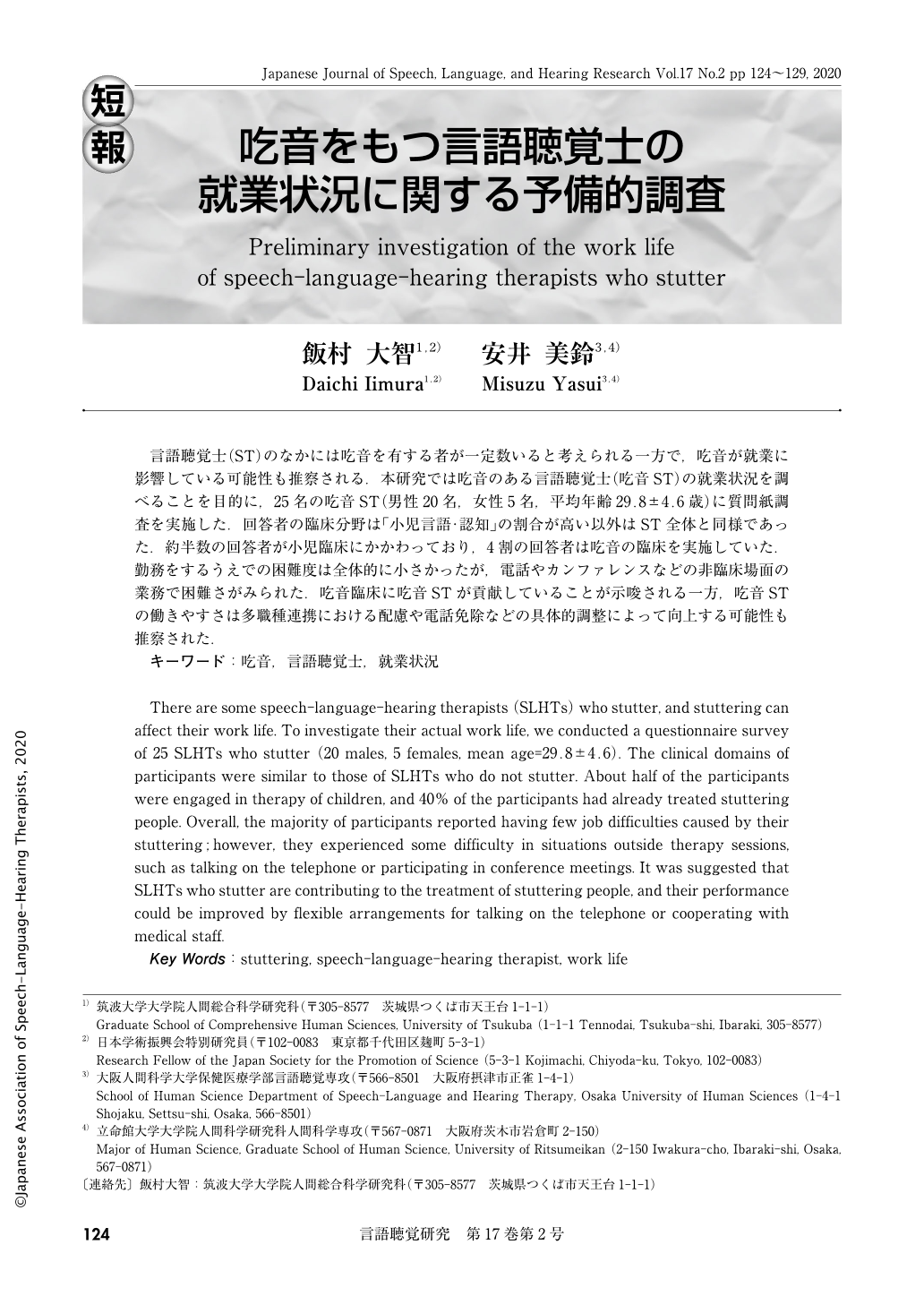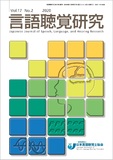Japanese
English
- 有料閲覧
- Abstract 文献概要
- 1ページ目 Look Inside
- 参考文献 Reference
- サイト内被引用 Cited by
言語聴覚士(ST)のなかには吃音を有する者が一定数いると考えられる一方で,吃音が就業に影響している可能性も推察される.本研究では吃音のある言語聴覚士(吃音ST)の就業状況を調べることを目的に,25名の吃音ST(男性20名,女性5名,平均年齢29.8±4.6歳)に質問紙調査を実施した.回答者の臨床分野は「小児言語・認知」の割合が高い以外はST全体と同様であった.約半数の回答者が小児臨床にかかわっており,4割の回答者は吃音の臨床を実施していた.勤務をするうえでの困難度は全体的に小さかったが,電話やカンファレンスなどの非臨床場面の業務で困難さがみられた.吃音臨床に吃音STが貢献していることが示唆される一方,吃音STの働きやすさは多職種連携における配慮や電話免除などの具体的調整によって向上する可能性も推察された.
There are some speech-language-hearing therapists (SLHTs) who stutter, and stuttering can affect their work life. To investigate their actual work life, we conducted a questionnaire survey of 25 SLHTs who stutter (20 males, 5 females, mean age=29.8±4.6). The clinical domains of participants were similar to those of SLHTs who do not stutter. About half of the participants were engaged in therapy of children, and 40% of the participants had already treated stuttering people. Overall, the majority of participants reported having few job difficulties caused by their stuttering; however, they experienced some difficulty in situations outside therapy sessions, such as talking on the telephone or participating in conference meetings. It was suggested that SLHTs who stutter are contributing to the treatment of stuttering people, and their performance could be improved by flexible arrangements for talking on the telephone or cooperating with medical staff.

Copyright © 2020, Japanese Association of Speech-Language-Hearing Therapists. All rights reserved.


